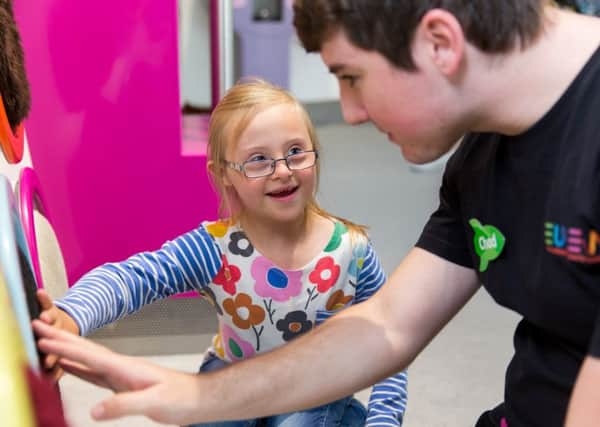Eureka! column: Language is more powerful than you think


As part of my role as Inclusion Manager at Eureka! The National Children’s Museum I deliver training to our team (plus teams at other museums and attractions) around disability and accessibility, and the fear of saying the wrong thing is something that comes up time and time again. People often end up saying nothing at all because they don’t want to give offence, however that can be every bit as hurtful to the person on the receiving end of the silence.
One of the fascinating aspects of language is the way it evolves and responds to circumstances such as who is speaking, when they’re speaking (i.e. in which decade) and even in which country - I’m thinking of the sometimes amusing but often confusing differences between American and British English. This means that what is acceptable language here today may not be acceptable elsewhere tomorrow – there is no definitive right and wrong.
Advertisement
Hide AdAdvertisement
Hide AdThe language we use both shapes and reflects our thoughts and ideas. Words convey not just our literal meaning, but also our attitudes and beliefs about the way the world should work. We want our words to accurately reflect our values – which is tricky when their accepted meaning is constantly changing.
It can seem as if the world of disability in particular is full of linguistic traps. Most people these days know to use “wheelchair user” rather than “wheelchair bound”, but do I say “deaf” or “hearing impaired”? And if someone with Asperger syndrome calls themselves as an Aspie, does that mean I can too? As long as I meant well, it doesn’t matter, right?
Wrong.
Imagine if you were to meet someone new and introduced yourself as “Natalie” and they kept calling you “Nat”. At best you might feel annoyed or at worst, hurt. If they persisted in misnaming you despite you always referring to yourself by your full name, you might feel ignored, angry and belittled. Why aren’t they listening to you? Perhaps other people will start to call you Nat as well, accepting the first person’s judgment of you. If you can find the energy to challenge the second speaker, they may be surprised: “I had no idea you didn’t like it”. Hopefully, they’ll follow it up with “I’m sorry, what would you like me to call you?”
So it is with the language of disability, though due to the shifting nature of our language no-one expects you to get it right every time or to know that the word we used last year is now unacceptable. If you do get it wrong, just apologise and ask what language the other person would prefer you to use. And remember that their answer may be quite different to someone else’s – don’t assume that you’ve been given a universal password which will put an end to all awkward conversations forever!
Advertisement
Hide AdAdvertisement
Hide AdHowever, there is a magic question that will put you both at ease and open up the channels of communication. It’s something that works for everyone, demonstrates respect and puts everyone on an equal footing. We all like to be referred to by our name – so why not start by asking theirs?